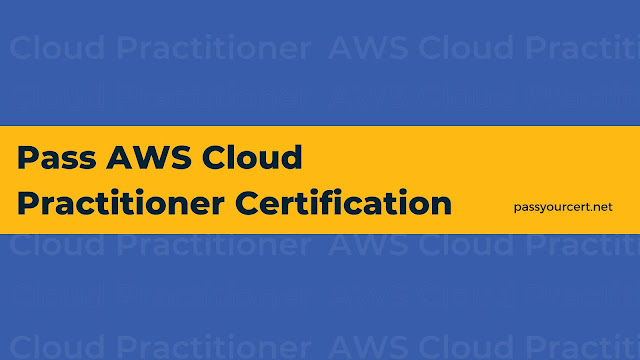Pass AWS Cloud Practitioner Certification
As a professional, it is important to keep up with the necessary skills required to drive a transformation to the cloud. AWS (and other cloud platforms) are becoming increasingly popular among startups, fintech, and even well-established companies that are looking for ways to cut costs and embrace digital transformation.
And the AWS Cloud Practitioner (ACP, from now on) certification is a terrific place to start for anybody new to AWS. This certification verifies your understanding of AWS's foundational concepts, which is crucial for developing deeper professional AWS abilities.
The exam's best feature is that it doesn't require any coding or programming knowledge at all. As long as you are familiar with words like "database," "servers," "network," "platform error," "hackers," and "web application," you will be well on your way to passing it.
Eligibility requirements
The candidate must satisfy the conditions given below in order to sit for the AWS Certified Cloud Practitioner Certification exam:
having spent at least six months in a position involving sales, management, technology, finance, or buying
basic knowledge of how to use IT services on the AWS Cloud platform
Exam Format
The AWS Certified Cloud Practitioner Certification Exam has two distinct questions. A multiple-response question contains up to five alternative responses but can have more than one correct response, whereas a multiple-choice question has one correct answer and three incorrect ones (referred to as the distractor). The question can be appropriately answered by a number of choices.
Exam Objectives
This certification exam gives candidate’s strength to:
- Explain AWS cloud and its basic infrastructure
- Describe the account management, billing, and pricing
- Explain AWS cloud values
- Explain the basic principles of AWS Cloud Architecture
- Describe the shared security model, security and compliance concepts
- Recognize the primary sources of technical assistance or documentation
- Explain the main characteristics of operating and deploying in the AWS Cloud
Pass AWS Cloud Practitioner Certification with these Tips
- What tool (or service) performs what on AWS, such as EC2 (think servers), DynamoDB (database), and subnet (network). Fortunately, you don't need to be familiar with all 175 of these services; you just need to know around 20 or so.
- Well-Architected framework: After learning what each tool's function is in #1, you need to know how to install them in accordance with best practises to get the most out of the cloud in terms of cost, security, dependability, operations, and efficiency. In conclusion, you'll discover the best ways to set up AWS services.
- Shared-Responsibility Model, Pricing, and Account Management: These merely clarify who is in charge of what in terms of security and operations between AWS and the cloud user. Price and customer service assistance. All of them are necessary to guarantee efficient planning and operation while moving to the cloud.
These three (3) are, in my opinion, the main aspects that AWS Cloud Practitioner confirms.
- PassYourCert: Jay thoroughly covers the entirety of the AWS Cloud Practitioner knowledge base in this course. He also knows how to simplify complicated concepts without oversimplifying them. I would highly suggest it.
- The four-hour-long YouTube video by Andrew Brown provides a clear explanation of all the crucial ACP features. Watching it after watching Stephane's more in-depth lessons is advised. It is available here.
- Practice Questions: This is a crucial component of getting ready. A large portion of the exam questions for the AWS Cloud Practitioner certification (40–50%) will be present in any respectable course. Because I was previously familiar with several of the questions, it made my exam simple and I was able to finish in under 35 minutes.


Comments
Post a Comment